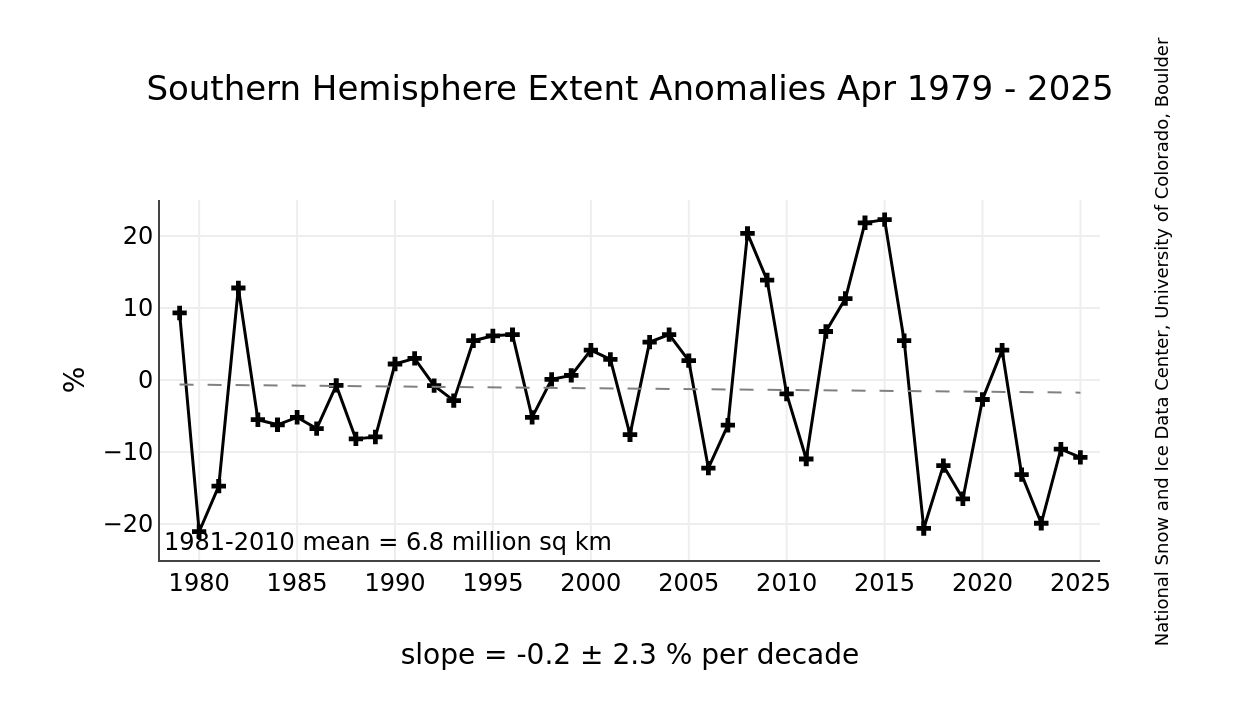
The 1979 - 2000 mean Antarctic is 16.4 million sq km compared to the Arctic's 10.1 million sq km. The larger size partially lowers the combined trend. The links main page doesn't have a global option.
http://nsidc.org/data/seaice_index/Your source however is, in my opinion, another example of fear mongering by science. NSIDC has a page devoted to the Arctic where ice is melting but doesn't have one devoted (I could be wrong) to the Antarctic where ice is stable or even gaining.
Even the timing of the updates is interesting to me. If you look at 2008 they updated it 15 times on 04/07, 05/05, 06/03, 07/02, 07/17, 08/01, 08/11, 08/25, 08/26, 09/04, 09/16, 09/24, 10/02, 11/10 and 12/03. Typically ice maxes out in March and is the least in September. That means that they updated it 9 times during the melt season and 3 times during the ice formation season. Shouldn't ice formation be as interesting scientifically as melting ice?
October 2008 saw the highest October gain in the 30 year record (second overall) and it was described as "particularly fast" gaining 3.7 million sq km. February 1988 is number one overall at 4.1. Now with only 30 years of history that may be reasonable but August 2008 was described as "record rate of ice loss" at 3,0 million sq km. In fact it was tied with 2002 for the greatest August loss. July 2007 was number one at 3.4. Why the different language and why didn't they bother to mention 2002?
I don't dispute that we've lost ice over the last 30 years nor do I dispute that it is, over all, warmer then it was 30 years ago. What I question is how much is man's fault and how much is natural variation.
In a previous thread I pointed out that the current sea level rise is about half of what it has averaged for the last 20,000 years or so and therefor I thought that what we are seeing is not unusual. I was told that averages can be deceiving. I agree about looking at a short term such as claiming that because 2008 had more ice then 2007 we're going into an ice age but 20,000 years?